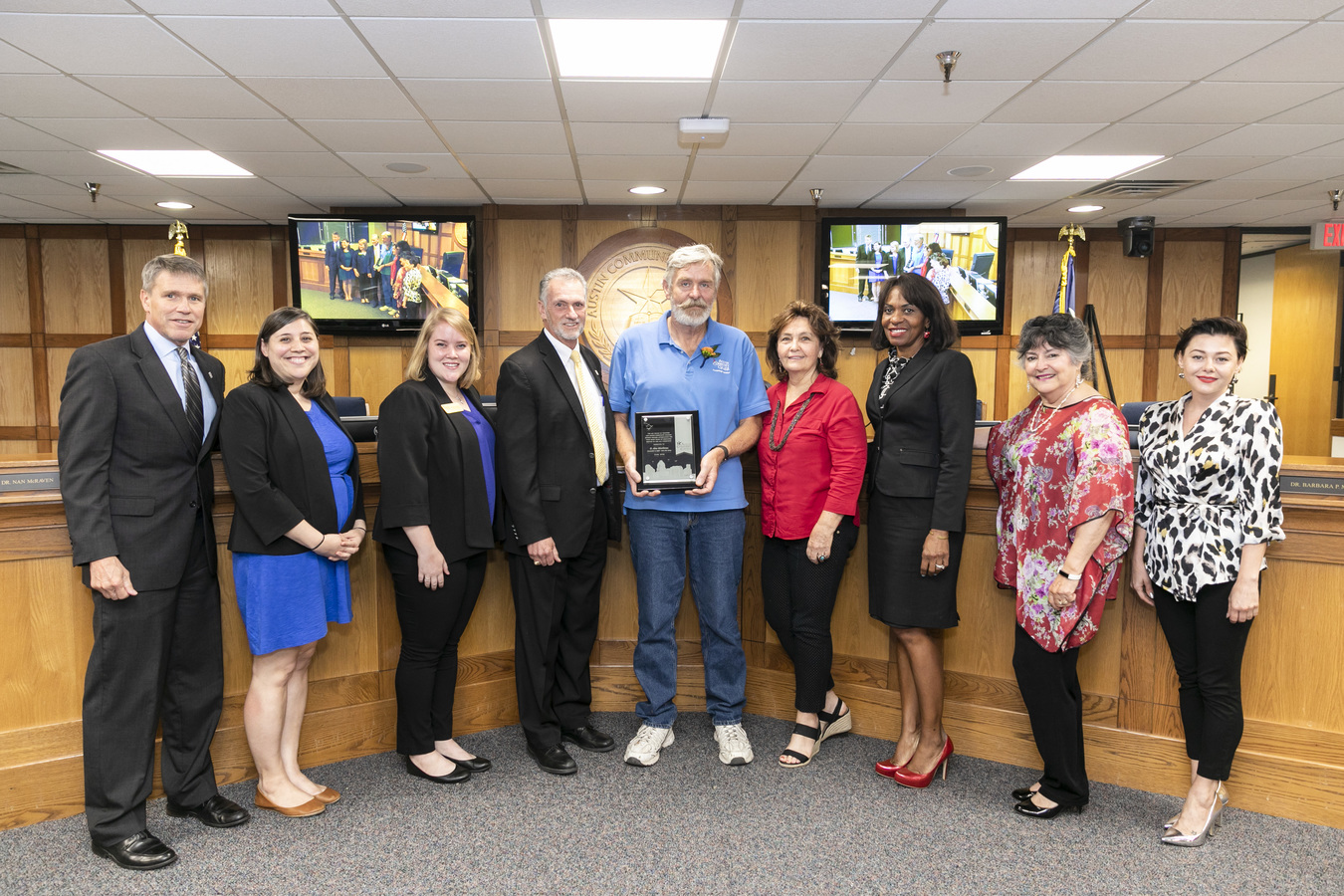New laws, adult ed, and student services discussed at June 3 Board meeting

The Austin Community College District (ACC) Board of Trustees heard reports on the 86th Texas Legislative Session, adult education programs, and student wraparound services during its June 3 regular meeting.
86th Legislative Session
Dr. Molly Beth Malcolm, Campus Operations and Public Affairs executive vice president, presented a summary of bills passed during the 86th Texas Legislative Session, which ended May 27, and the impact they will have on the college.
One of the most significant items was the passage of HB1, the state budget, which results in an additional $2.4 million in funding for the district for the 2020-2021 biennium.
Lawmakers also passed SB25, a comprehensive bill that contains multiple measures designed to improve transfer pathways. The bill establishes an advisory committee made up of equal representation from 2-year and 4-year institutions to study and make recommendations to the Legislature regarding changes to the 42-hour core.
Other notable bills:
- SB2 calls for a public vote if local taxing entities increase revenue by more than 2.5 percent from one year to the next. Community colleges and hospital districts are exempt from this requirement and will remain at an 8 percent cap.
- SB1324/HB4010 requires dual-credit students to file a degree plan after completing 15 semester credit hours. ACC already does this as a benchmark.
- SB1276 builds collaboration into dual credit agreements between school districts and institutions of higher education to better align student advising and postsecondary pathways. This is also something ACC already does.
- SB18 requires higher education institutions to adopt a policy detailing students' rights and responsibilities regarding expressive activities at the institution. ACC is currently working on this policy.
- SB11 is a safety bill focused on mostly K-12 requirements; however, it does require that higher education institutions have a multi-hazard emergency operations plan. ACC already has this plan in place.
The Governor has until June 16 to sign or veto legislation passed during the 86th Legislature. Any bills not vetoed by this date will become law without his signature.
Adult Education
ACC's Adult Education (AE) program provides free classes for students without a high school diploma who would like to learn English, prepare for a high school equivalency exam, gain the basic literacy skills to succeed in the workplace, and enter college or career training.
Katherine Dowdy, Adult Education executive director, presented the report for the 2018-2019 academic year. The program served more than 4,000 students who were approximately 70 percent Latino, 11 percent Asian, 11 percent white, 7 percent African American, and 1 percent other. Dowdy said they expect to add an additional 300 students before the end of the year for a slight increase over last year (4,404 students).
Enrollment and highlights by program:
- English as a Second Language (ESL): 3,106 students, at capacity certain times of the year and unable to meet demand
- High School Equivalency (HSE): 882 students from all levels. 132 completed GED or other HSE exam last year and 154 so far this year.
- College prep: 273 students enrolled, 142% increase in enrollment as compared to last year
- Career pathways: 220 students take training classes in computer skills, hospitality and beginning medical as well as basic skills classes
Student Support Services
The objective of student support wraparound services are to increase access, persistence, and completion — especially among underserved student communities, such as students who are low income, from foster care, single parents, facing food and housing insecurity, and have disabilities.
According to the presentation by Dr. Charles Cook, Provost and Academic Affairs executive vice president, a total of 1,873 students used student accessibility services (SAS) and 1,474 used the support center (SC) during the spring 2019 semester. Of those students who used SAS, 51 percent were nonwhite and 59 percent were female. Of those students who used SC, 76 percent were nonwhite and 73 percent were female.
Students who used either of these services had a greater persistence rate than the general student population:
- General population students had a 45 percent persistence rate from fall 2017 to fall 2018; whereas students who used the SC and SAS had a 53 percent persistence rate.
- General population students had a 69 percent persistence rate from fall 2018 to spring 2019; whereas students who used the SC and SAS had a 70 percent and 74 percent persistence rate, respectively.
Recordings of the board meetings are available on the ACC Board of Trustees website.
Add new comment